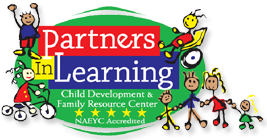It can be easy to forget, so here is a reminder.
1. Children are not "autistic," they have Autism. We work with and love children with Autism. The disorder does not define the child, it is simply part of them and their personality.
2. While you and I may not notice lights, sounds, smells, etc., many children with Autism are over- or under- sensitive to those things. They may be overwhelmed by the buzzing of an air conditioner in another room or by the lights in Walmart. Some children love to cuddle and need that sensory pressure to calm themselves.
3. Don't get frustrated if the child does not listen to directions. They may not understand what you are asking of them. Really get to know your child and understand their individual abilities. Push them to reach their potential, at reasonable increments.
4. Children with Autism think differently than many of us. They are concrete thinkers, meaning that they take things more literally than we might. Saying, "hold your horses" to a child with Autism could possibly confuse them and ask, "Where are the horses?"
5. Young children with Autism have limited vocabulary. While they may have previously had hundreds of words, they could have regressed and are now having a very difficult time expressing their wants and needs to you. Not being able to communicate causes frustration; frustration, just like we feel in the middle of an argument in which the other person does not understand what we are trying to communicate.
6. Again, people with Autism think differently than most of us. Many children on the Spectrum think visually and have a spatial learning style, meaning that they learn better when they can see what is being taught. Repetition and visual aids helps these children understand the concepts that you are trying to teach them.
7. Find each child's strengths, it isn't that difficult. EVERY child has many strengths. Build on what your child can do, in their own special way.
8. Social interactions can be difficult for children with Autism. Encourage socialization and group participation. Teach your young child how to play reciprocally; teach them how to play WITH you, not just alongside you. Use Social Stories to teach your child about specific situations, such as how to start a conversation. You can also use Social Stories to teach the correct solutions to situations that children have difficulty with, such as using the potty or banging their head.
9. Pay attention to your child and their behavior before, during, and after meltdowns. You should eventually be able to identify triggers to those meltdowns. Once you know what is more likely to "set off" your child, you can work to control those factors. Meltdowns typically occur when your child becomes overwhelmed, such as sensory overload. An example would be a child having a meltdown in Walmart due to a combination of the bright lights and loud noise.
10. Children are children and we love them, whether they are our own or they are our students. Make the best out of the gift that you have been given. Imagine your child's potential and GO FOR IT! You are your child's best advocate.
I hope that this video served as a great reminder to you, as it did me.
Katie Zink, Infant-Toddler Family Specialist/P



No comments:
Post a Comment